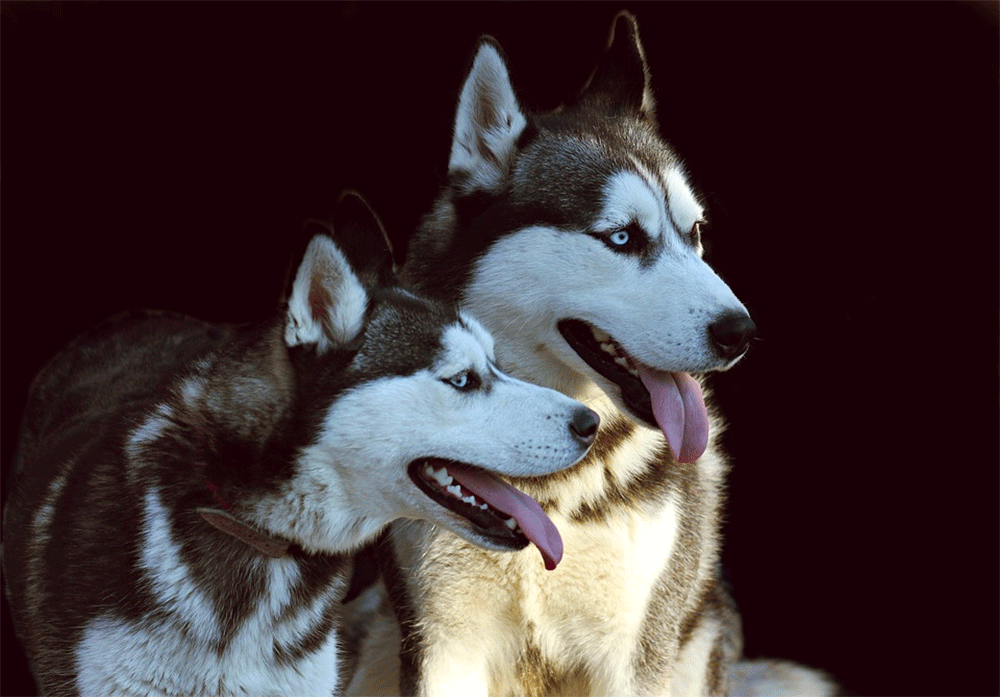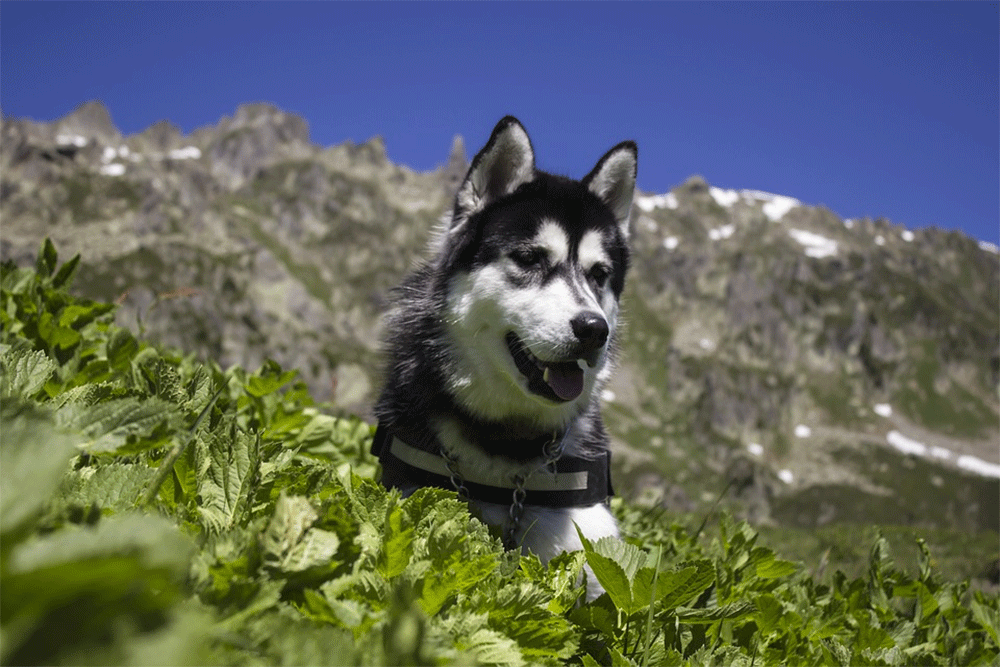Yes, they do! In fact, many huskies don’t seem to shut up!
Siberian huskies are an incredibly talkative breed. This doesn’t mean that they bark a lot. They actually bark much less than most other dog breeds.
Siberian huskies prefer to howl, yap, whine, and ‘talk.’ They use all of these different sounds to communicate different things.
The reason why huskies don’t really bark is that they’re fairly rubbish at distinguishing threats and intruders. Most dogs tend to bark at dogs, people, and things that they perceive as threats when they enter their property.

Huskies do not do this. They prefer to assault intruders with licks and cuddles rather than greet them with barks. They also tend to treat every person they meet with excitement and friendliness rather than suspicion and aloofness.
Huskies fill the barking void by making lots of different sounds and noises. The talking, that people tend to associate with huskies, is a whining sound that can at times mimic human words.
You don’t really need to encourage huskies to talk. They learn to do so as puppies without any prompting. This kind of vocalization is in their DNA. In fact, many husky puppies find it more difficult to bark than yowl or talk.
You can’t really train the talking out of huskies. If you want a quiet, peaceful life then we suggest you choose a different breed.
Do All Huskies Talk?
In general, yes. All huskies have the ability and inclination to howl, yap, whine, and make sounds that we describe as ‘talking.’
It is coded into their DNA to make these sounds. The talking is actually a deep instinctual behavior that holds over from their wolf ancestors.
That being said, every dog is different.
Some huskies prefer to make particular sounds over others. For instance, some huskies communicate mostly in howls, while others prefer to whine.
If we’re talking about making sounds that imitate human sounds, this is definitely a learned behavior.
Those videos you see of huskies saying, ‘I love you,’ ‘mommy,’ and all kinds of cute things are, in essence, tricks.
What happens is that owners pick up on a sound that imitates their words and praise these sounds. The owners then tend to repeat the word which elicits a sort of call and response instinct. The dogs are encouraged and praised for making sounds that are closer to the human words.
In theory, every husky can do this. In practice, a lot depends on the inclination of the dog. Huskies are incredibly independent and stubborn dogs. Training them to do anything can be an uphill struggle.
If your husky doesn’t feel like learning to speak, they probably won’t. In fact, if they don’t feel like doing it, they will very vocally tell you so!
You may also have trouble teaching a reserved husky to talk. If your husky is quieter and doesn’t like to howl at the drop of a hat, they’ll be less inclined to copy your speech.
Why Are Huskies So Vocal?
There are so many reasons why huskies howl, yap, or speak. If you’re two minutes late with dinner, they’ll let you know. If they see a bee outside, they’ll let you know.
Before we get deeper into what they’re actually trying to communicate with you, let’s look at their instincts.
Huskies have retained the wolf-like instinct to howl. This behavior is common in the wild as howls and prolonged sounds carry better than short barks.
Wolves also prefer to howl because it gives them more time to pinpoint the location of the sound. Barks are too short to figure out.
Huskies probably retained this habit because of the environments they were bred to work in. In the harsh, snowy northern lands, it can be difficult for dogs to see their pack. Howling, yapping, and whining is their only method of communication.
These higher pitched sounds carry better over the frozen tundra and hills. It was far easier to hear and understand during a ride.
Nowadays, pet huskies tend to use their vocalizations to let you know what they want, to alert you to things they’ve noticed, or to simply mimic noises that they hear.
Mostly, huskies speak to communicate with their owners or their pack. They’ll let you know if they’re hungry, bored, needing to go to the loo, or if they’ve found something they want to show you.
Huskies may also speak in response to noises that could be considered ‘howls.’ For instance, emergency sirens, music, babies, and other dogs might sound like a dog howl to your husky. They might ‘sing’ along as a way of responding.
Finally, huskies are incredibly vocal when they are distressed, or feeling particularly defiant. Many huskies tend to talk back to their owners when they are being asked to do something they don’t want to do.
How Do You Teach A Husky to Say I Love You?

Teaching a husky to say, ‘I love you,’ or any other phrase relies on a call and response method.
First of all, you need to make a series of short howling noises. The idea is to encourage your husky to howl alongside you.
When the husky returns the short howl, reward the behavior with a treat or affection.
Once your husky is happily repeating your single short howl. You need to change your ‘call’ to three short howls. Again, reward your husky for copying your howls.
It is important to keep the howls short because you want them to mimic the words, ‘I love you.’
When your husky has gotten the howling down, you need to start shaping your howls so that they resemble the words.
Each time your husky gets closer to the desired sound, reward them with treats or affection.
It is important to remember that no matter how much you practice, your dog is not going to be able to perfectly reproduce your words. Their vocal cords just aren’t built in the same way.
